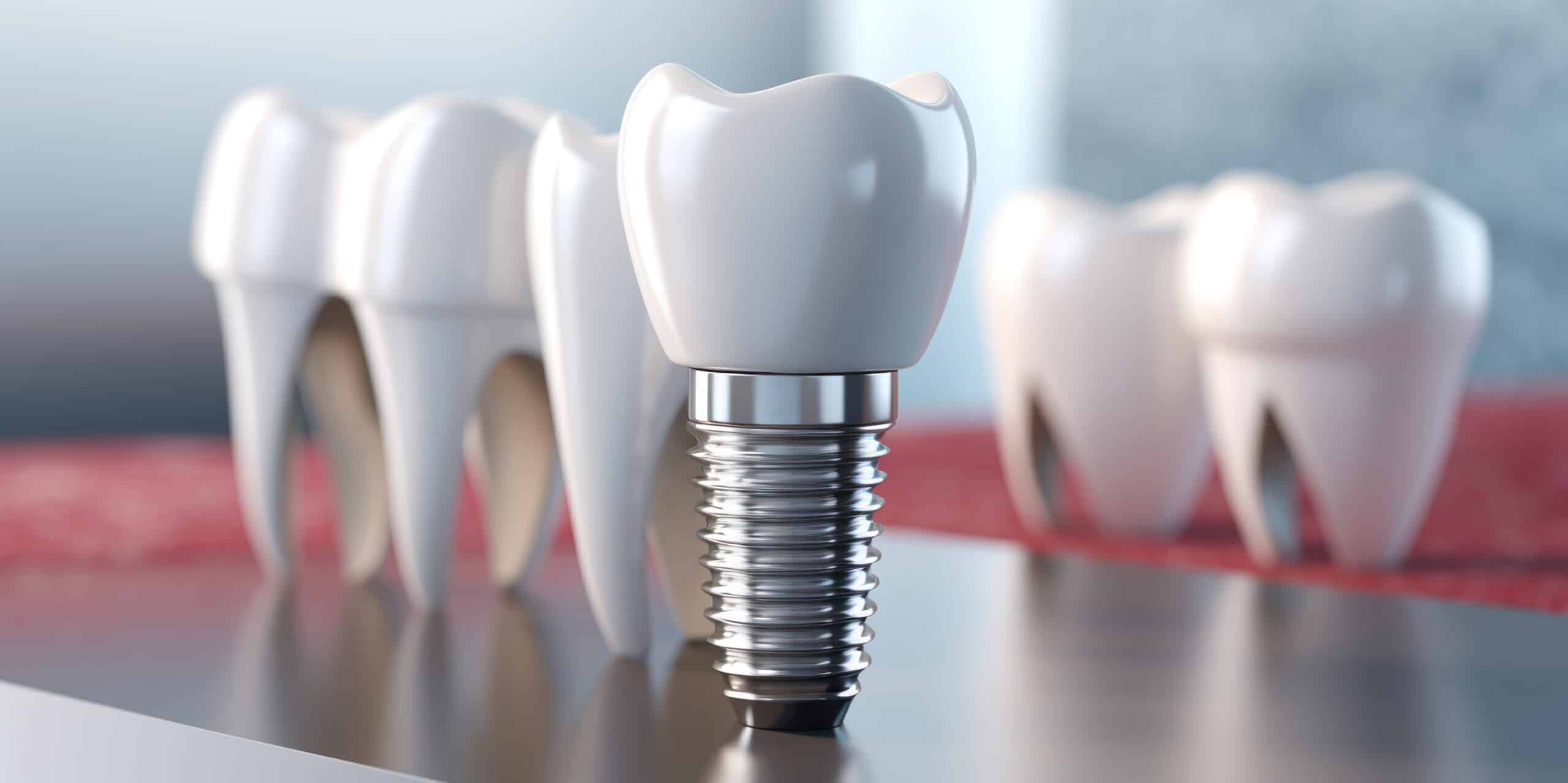Those who have missing teeth have options for replacing them today that they didn’t have just a few years ago. Missing teeth no longer need to be an embarrassment or a sign of age. You can have functional replacements that aren’t dentures.
Two choices for replacing missing teeth are dental implants and bridges. They both serve the same purposes of allowing for function and keeping your other teeth straight and in place. However, each has some differences also that should be considered.
Dental Implants
Dental implants, as they are done now, are a fairly new trend. They are a permanent solution to missing teeth that offer a natural-looking replacement that functions as your real tooth.
Dental implants consist of two parts which are the metal post and the cap, which is the tooth replacement. The post is inserted into the jawbone and serves as a type of tooth root that keeps the artificial tooth, or cap, in place. The artificial tooth is placed over it so it fits into the space in your mouth as your old tooth fits.
Dental implants are customized to fit into your mouth as your old tooth. They look like your old tooth and people will never know they aren’t real. This is one of the best features of getting an implant.
Those who have many missing teeth aren’t precluded from getting implants. You can get implants to fit a whole series of missing teeth, even a whole row.
The complications of getting a dental implant are that whether you get one depends on the bone density in your jaw. Those with less bone density may need a bone graft before getting an implant. Most dentists will recommend that you get a bone graft when you get the tooth extracted.
That is the easiest and cheapest avenue since you are already having surgery. After that, the dentist will recommend you allow for three or so months for healing before getting an implant.
The Cost of Implants
Dental implants in Toronto cost more than other options as they can cost between $1500 and $6000 per tooth. The final cost depends on the materials used for the implant and the extent of how many implants are needed.
One of the disadvantages of dental implants when compared to a bridge is that they will cost more than a bridge. Another disadvantage is that most insurance doesn’t pay for implants.
Dental Bridges
Dental bridges are artificial teeth that fill the gaps left by missing teeth. They can be permanent or removable.
Bridges are affixed to the mouth using attachments to the teeth on both sides of the gap. Those teeth will have crowns that clasp onto natural teeth that can be undone for removable bridges.
Permanent bridges are affixed to prepared teeth with dental cement. The anchor teeth on both sides of the gap create support for the bridge. Some dentists opt to anchor the bridge with a dental implant post.
Three types of bridges are available. There are the traditional fixed bridges, cantilever bridges, and Maryland bonded bridges.
Traditional bridges use the two crowns on anchor teeth to hold the bridge in place permanently. Cantilever bridges have one crown on an adjacent tooth and no tooth on the other side. These are bridges for the very back of the mouth.
Maryland bonded bridges are typically used for the front teeth. It is a bridge made of metal teeth and a framework with porcelain fused to it and bonded with resin.
Bridges are highly durable and offer a natural look. They can help with both speaking and eating as they fill the gap of missing teeth. A bridge can replace one or several teeth. Bridges have been used for decades and have a proven track record of success.
One advantage of getting a bridge over an implant is that it is less expensive. The average cost is between $800 and $1200 for those with insurance and the cost can range between $2000 and $3000 for those without insurance.
Dental bridges are less complicated to install than implants. They don’t involve surgery or bone grafts and don’t require months of healing before installing them. Most are covered by insurance. However, they could need replacing in the future as sometimes bridges fail.
Bridges are a good option for those who don’t have the proper bone density in the jaw for an implant.
Those who are choosing between implants and bridges should consider the time, cost, and oral health in their decision. There could be some cases where either one can be less expensive either in the short term or make for a less costly long-term option.




